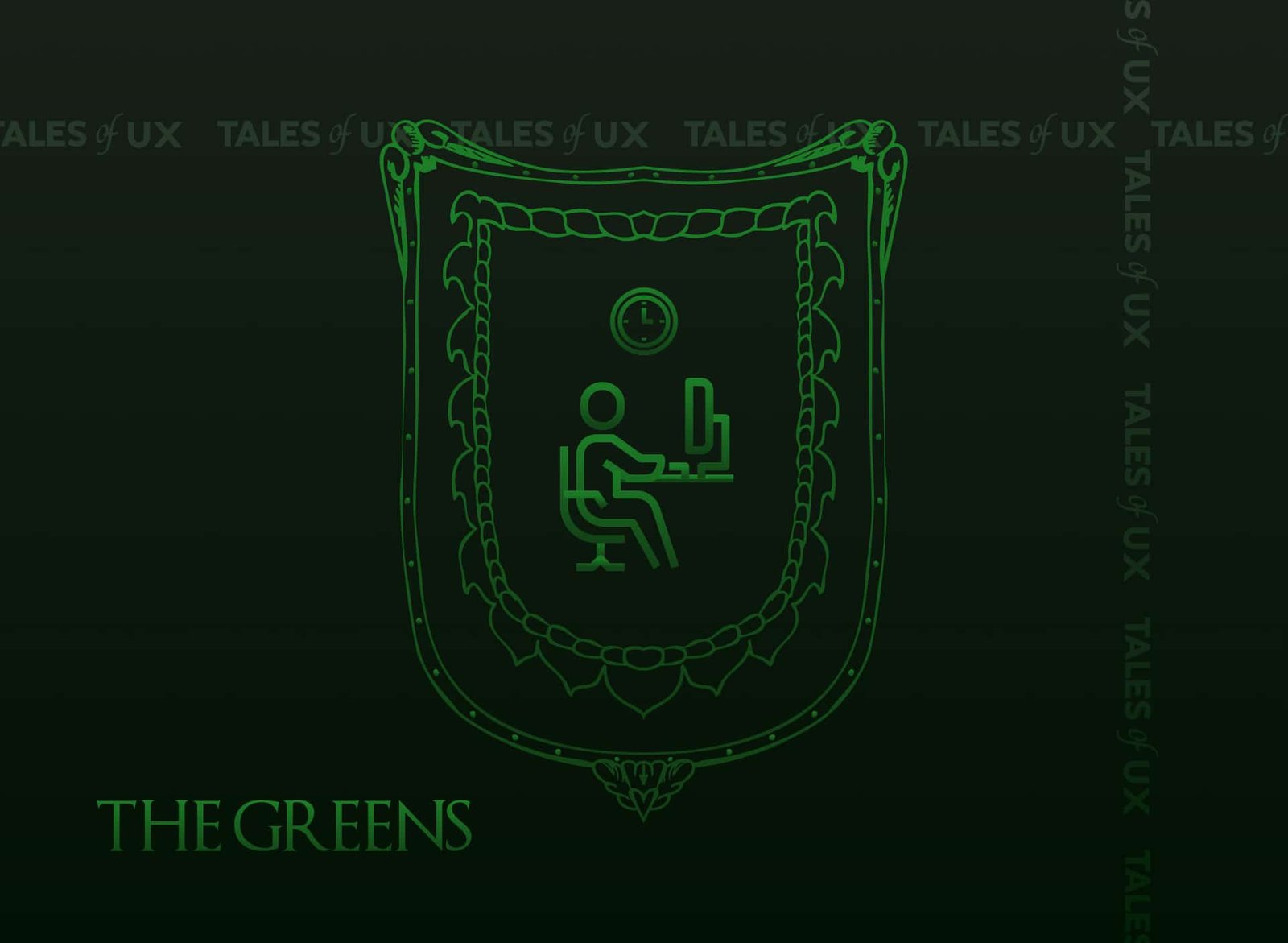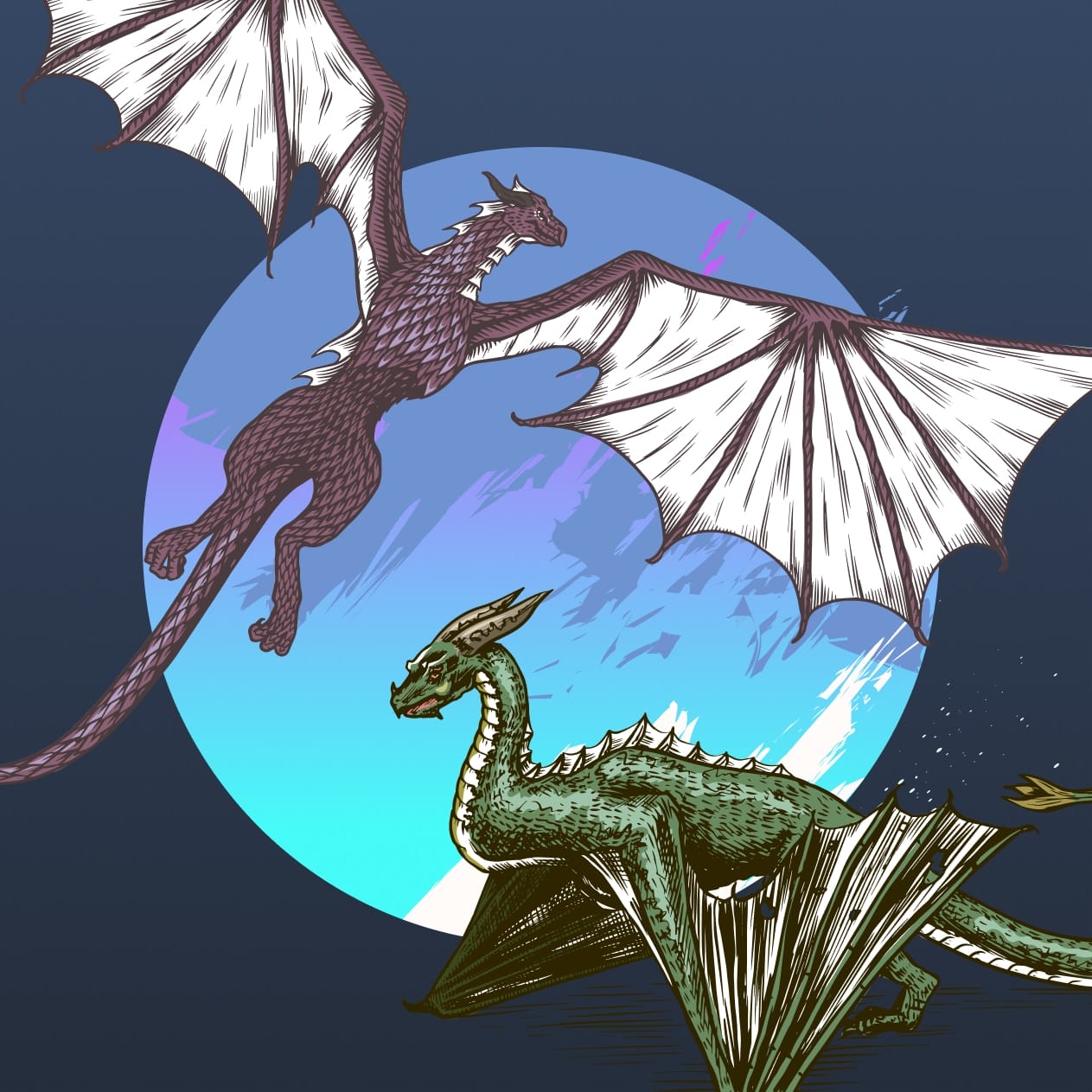Imagine a realm where epic battles of ambition and ideas unfold mirroring the civil war known as the Dance of Dragons, as written in George R.R. Martin’s book, “Fire and Blood,” which recently formed part of the TV series House of Dragons on HBO MAX. This titanic clash of loyalty and innovation resurfaces in our modern times of remote work. Much like the Targaryen Dynasty’s struggle for supremacy, the digital landscape is witnessing its own riveting spectacle – the Dance of Digital Titans, or in layman’s terms..the Dance of Digital Tech Professionals.
Who will triumph: The Greens Vs. The Blacks
The Greens – I am a supporter of the 9-5 office rat race

The Blacks – I am a defender of high quality of life and remote work

Note: For those who have not seen House of Dragon or read the books, I promise this story will still make sense.
The inception of the Dance in Digital Tech remains somewhat of a mystery to me but perhaps its arrival came when the 2020 global pandemic took the world by storm. As our world braced itself for the unknown, an unexpected truth emerged, casting a spotlight on the possibilities of work: the undeniable triumph of remote work on both business and individual scales.
We could indeed thrive while working remotely!
No one knew how long this different world would last, but we adapted. As the curtain rose on this unprecedented act, a collective of stories unfolded – tales of resilience, innovation, and a drive to succeed despite the odds.
Traditional norms shattered like glass, as even the biggest advocates of in-person work were forced to reevaluate their perspectives. Businesses were faced with either going remote or letting their business die. This meant making way for the birth of new businesses, and ideas and the blossoming of remote work culture. In the midst of this transformation, a remarkable discovery was made, a precious jewel in the rough:
- the elusive work-life balance.
For many, this newfound equilibrium was an uncharted territory, a revelation that resonated deeply. Imagine escaping the daily grind of a lengthy 3-hour commute, relishing the joy of being present with loved ones, and savouring the luxury of focusing on well-being. From cooking wholesome meals to enjoying the moment in unhurried lunches, the possibilities were as limitless as they were liberating.
The benefits extended beyond the personal realm, rippling through the fabric of society. Transportation costs dwindled, dining out took a backseat, and the environment rejoiced in the decreased carbon footprint. The chorus of advantages was harmonious and far-reaching, painting a vivid portrait of a life unburdened by the constraints of convention.
As a new way of living evolved, the Dance in Digital Tech unfolded, it became a dance of liberation and we had to adapt. The very essence of work was reinvented, and a transformational journey began. Little did we know, this was only the beginning, setting the stage for a grand performance that would redefine the future of how we work and live.
“Ah, so this is what freedom could look like,” whispered many of us.
But then something in the air changed. What changed? If everyone loved working remotely, why did the supporters of The Greens grow? (The Greens refers to people supporting a return to the office, to the 9-5, 5 days a week standard of working).
- Big business leaders particularly those in tech started to speak up against remote work and started forcing their staff to come back or face losing their jobs like Elon Musk, the CEO of Tesla did
- Meta announced a change in policy for office-based workers to return to offices for at least 3-days a week
- Zoom, the company that grew to new heights and became synonymous with video chats also wanted staff who work within 50 miles of a company office, to come back two days per week according to Business Insider
In a way, we could make some sense of why a “big boss” would want their staff to return to the office, but what is strange is that to the side of The Greens, many employees have joined to support. There are countless LinkedIn discussions happening about whether people should work remotely or come to the office.
We speculate that people insisting on returning to the office are trying to escape their home environment due to housemates, noise or kids or they don’t trust enough in their skills and discipline to do work outside of the office or want to be seen by their managers.
The most frequent arguments to defend working from an office:
- Better productivity and ability to assess people’s performance
- There are concerns for younger and new employees not having access to meeting people, being onboarded & being trained
- Create team culture and build human connection in person
- Combat loneliness and improve cognitive performance
- Validation that a person has worked if they’ve come to the office
The 9-5 work model needs to continue to evolve and adapt for remote work
Jumping back to the 19th century – 9 to 5 was created to prevent the exploitation of factory workers and since then that way of working has been kept, maintained, and preached in support of. I am sure it was a great thing during its time but those times have come and gone and now in the 21st century have changed with technological innovations, people’s livelihoods at stake and digital transformation (hello, AI).
Make it make sense.
2020 was a window of opportunity for change and evolution as humans craved more meaning in their personal and professional lives. As a professional creative nomad, I hope to be part of this change, and momentum and redefine the future of work as it stands today. In a way, I’ve taken it as a personal mission to educate and help people and businesses to understand the value of remote work.
Now let’s turn our attention to The Blacks (The Blacks referring to. – people supporting remote work). Why do we think people supporting working remotely are continuing to do so and strongly protecting their set-up:
- To preserve work-life balance
- Flexibility as a lifestyle choice and the power to be able to choose how they spend their time and where they get to live
- Control over health, happiness and well-being
- Increase in employee engagement which means higher retention & happier employees
- Saving cost on offices
- Higher productivity observed from State of Remote Work reported that 90% of people surveyed in 2020 felt higher levels of productivity when compared to an office
Truthfully, The Blacks defend the future of work for the people and The Greens once they come to realisation but I can’t help wondering if the pullback towards the traditional 9-5 office model is underpinned by a complex interplay of physiological and social influences. We are so conditioned to conform and attached to our work identities that, for many, the daily commute and physical office space could serve as markers of our identity.
But not all is lost.
Many businesses are supporting The Blacks – Zapier, Airbnb, Toptal, Spotify, Slack, Buffer, and Coinbase to name a few in favour of flexibility, increased productivity, cost-savings, and maintaining work-life balance.
Is hybrid the answer?
Now let’s look at The Turn Cloaks (which refers to people who switched from fully remote to support a hybrid model). We can’t argue that hybrid is here to stay with benefits like cost-efficiency, redefining collaboration and communication, maintaining work-life balance and so on. The allure of hybrid is promising but we’re not fully convinced either.
Difficulties to transition to fully remote, corporate management that is unwilling or any other reason that it might be a new middle ground was found of hybrid working.
Hybrid does not stand for 4 days a week in the office!
Traditional work models cannot meet employee and customer demands for smarter, frictionless experiences. Organizations need integrated, connected and secure solutions for modern work challenges, such as hybrid work environments.
The true meaning of a hybrid is an offspring of two things of different natures that inherit random, unplanned, uncontrolled qualities from each of its parents. It doesn’t have a set preset, it is a work of nature.
Hybrid working is an adaptable way that serves as the middle ground for employees and employers and is something that is shaped on an individual basis depending on one’s role in the business they work with.
Many reports from studies are already coming out that hybrid working will be adopted by 75% of companies by 2025.
For businesses who want to go remote
In today’s competitive landscape, your organization will simply miss out on talented digital tech professionals by not offering remote work. And if you’re adopting a hybrid model but not finding ways to integrate your remote staff in important business decisions, you are also bound to lose this dance.
For employees who want to work remotely
Stand unwavering in your pursuit of remote work. Don’t stop challenging the status quo now. Do not simply “bend the knee” to go back to the old antiquated ways of working. Recall the days when the digital tech realm was in disarray and people were clearly unhappy, overwhelmed and unfulfilled. We were all shown a way forward to achieving more work-life balance and entering a new paradigm beyond work – what are we all so afraid of?
The Dance is not ever yet, how do you think it will end? Which side would you be on? Share your thoughts on social media with #danceofdigitaltitans
Sources:
- https://finance.yahoo.com/news/bosses-fed-remote-4-main-193500794.html
- https://www.mckinsey.com/industries/real-estate/our-insights/americans-are-embracing-flexible-work-and-they-want-more-of-it
- https://www.bbc.com/worklife/article/20230206-the-companies-backtracking-on-flexible-work
- https://www.foxbusiness.com/lifestyle/wall-street-ceo-backs-post-pandemic-push-employees-back-office-2023
- https://www.linkedin.com/pulse/who-win-remote-vs-office-outprof/
- https://www.gartner.com/en/podcasts/thinkcast/the-secrets-to-implementing-a-successful-hybrid-work-model
Stay up to date! Join our newsletter!
Join our community today and let the most exciting updates come directly to you. Stories, Design Lab items, discounts, new projects and industry insights – all delivered to your inbox.


